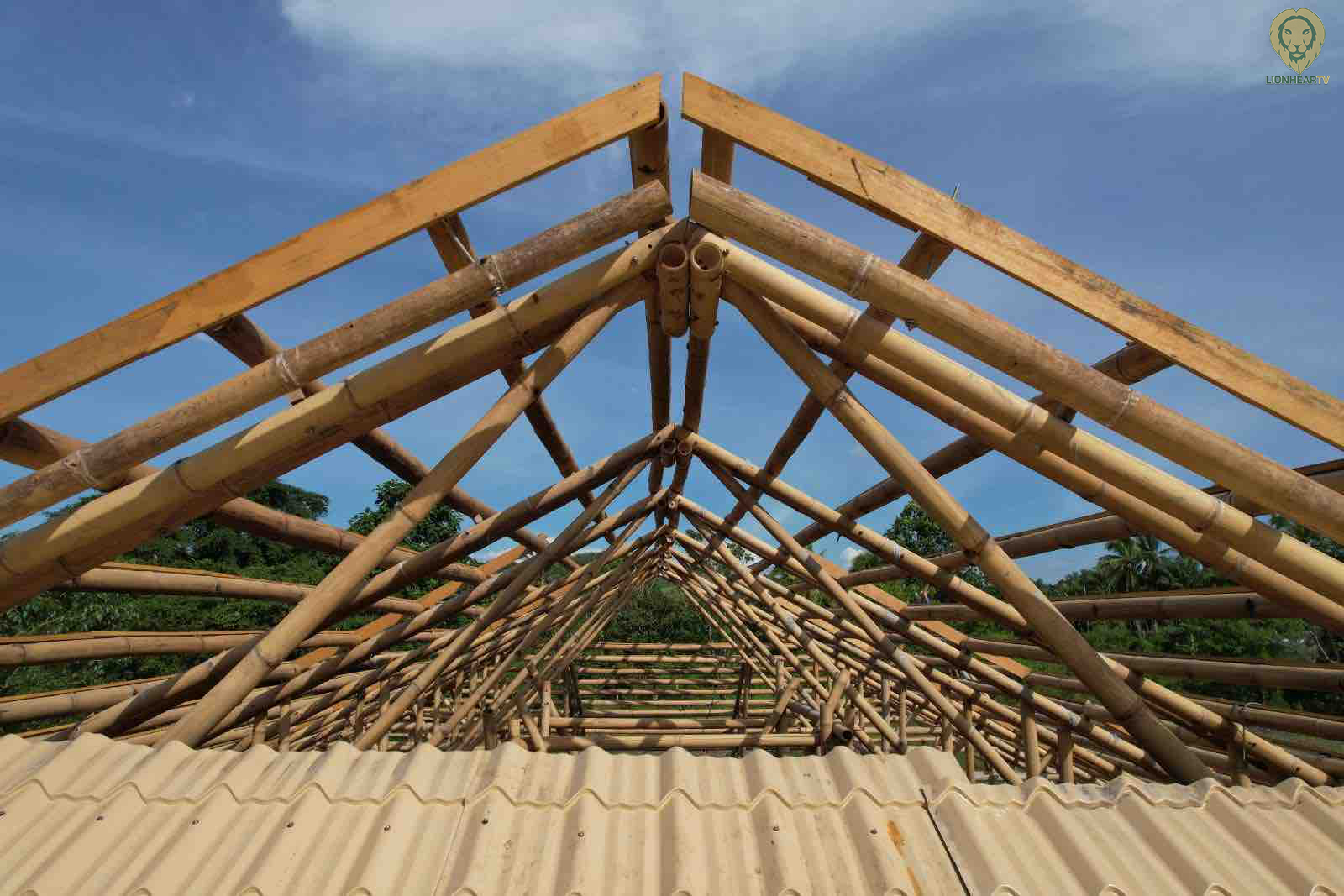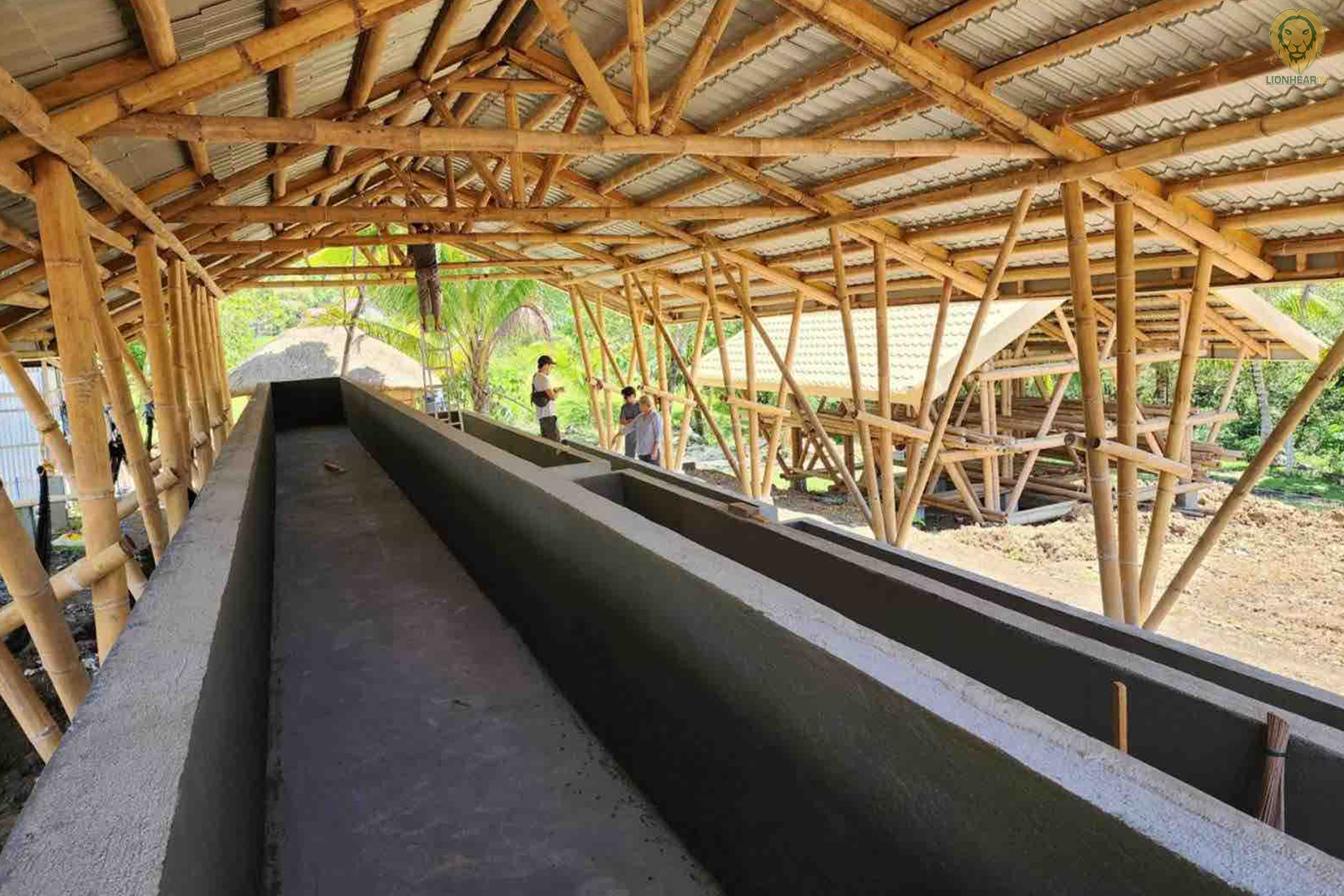In the Philippines, bamboo is the gift that keeps on building–a natural construction material that has, and continues to, provide families with safe, affordable, and resilient homes; create new communities across the country; generate sustainable livelihood; and establish innovative technology to further grow the bamboo industry.

It’s a gift that is continually nurtured by Base Bahay, a non-profit organization initiated by the Hilti Foundation that provides alternative building technologies to enable a network of partners to build quality socialized homes and structures that are comfortable, affordable, disasterresilient, ecologically friendly, and with social impact.
The latest among BASE’s bamboo ventures is the construction of a new treatment facility in Parang, Maguindanao, built in partnership with FLP Construction and Agricultural Development Corp, a real estate firm in Maguindanao. The new facility has generated over 30 jobs and will supply the treated bamboo poles required to build the Cement-Bamboo Frame houses for the affordable housing segment in the area.
“We would like to offer an alternative, more sustainable, and affordable housing solution to the market in Mindanao without compromising the strength, durability, and aesthetics of the houses,” says Jun Sarmiento, FLP Chief Operating Officer who together with his wife Bam Sarmiento are leading FLP’s advocacy for bamboo use across Mindanao.

BASE’s bamboo supply facilities are able to pre-fabricate bamboo panels, allowing the foundation to control the quality and build houses more efficiently. To date, Base has built over 1,500 Cement-Bamboo Frame Technology (CBFT) homes in the Philippines, with about 5,500 individuals sheltered in 15 communities.
“CBFT houses are tested against typhoons, earthquakes, fire, and insect infestations. The CBFT houses also provide good thermal comfort, which can help families save more on electricity and offset their expenses for other needs,” says Pablo Jorillo, BASE General Manager.
The bamboo treatment facility, which is the third in Mindanao and the sixth across the entire country, will also help develop the bamboo industry in the region. Mindanao is home to different bamboo species, including kawayang tinik, giant bamboo, and guadua or iron bamboo.
Aside from the treatment facility, BASE is set to build model houses in the area to showcase the unique vernacular designs that can be made using CBFT as well as its versatility and durability.
“We want to bring the price of home ownership down, especially for the socialized segment. We are exploring ways on how we can value the sweat equity or labor of homeowners, whether they use them to build their own or their neighbor’s homes or work for community-related activities and use these to help pay for their homes. Aside from this, we are also gearing up to bring in livelihood opportunities to further increase the purchasing power within the community. Included in our development plan are various communal areas to support a more productive and interactive environment. Currently, we are looking for more partners, who resonate with our vision of creating a more peaceful and equitable community, to help us create this space. Ultimately, we are hoping to create an alternative model community which we hope can be replicated in other areas of the Bangsamoro region,” says Jun Sarmiento.

FLP also plans to initially build 300 to 500 cement-bamboo frame houses in Barangay Sarmiento (currently Barangay Landasan) at Parang, Maguindanao for informal settlers. In the same area, they also plan to support the PNP’s peacebuilding efforts by allocating space for a reintegration program for Bangsamoro Islamic Freedom Fighters (BIFF) surrenderers. This community is envisioned to serve as a peace village model where everyone is given equitable access to learning and livelihood opportunities. “We want to create a community where peace is the norm, and no one needs to worry about survival. In such a space, we can unlock the human potential,” Jun Sarmiento added.
“CBFT is at least 15 percent more affordable compared to its usual counterparts. CBFT has also been recently accredited for two-storey structures by the Accreditation of Innovative Technologies for Housing Committee headed by the Department of Human Settlements and Urban Development (DHSUD),” Jorillo says. “At Base, we want to encourage more government agencies, institutions, and organizations to engage in partnership and take advantage of bamboo–the perfect alternative to conventional construction materials, especially with rising costs.”
For more information on Base Bahay Foundation and ongoing projects, visit http://www.basebuilds.com.

